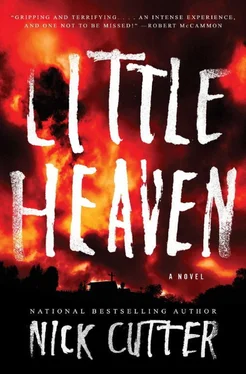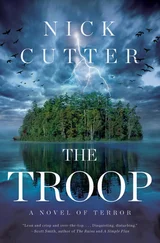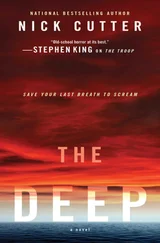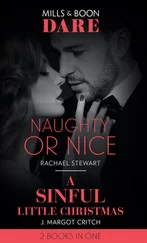“Truth or Consequences Police Department. Do you have a crime to report?”
Eb cleared his throat. “I do, yes.”
The line clicked. A series of buzzes, then a man picked up.
“Detective Rollins speaking. What’s the problem?”
The man sounded as if he was expecting an elderly woman to tell him that her cat, Mr. Buttons, was stuck up an elm tree.
“Er, yes…” Ebenezer was unsure how to proceed. He should have rehearsed. “I believe something’s happening in the woods and hills up past the town of Grinder’s Switch.”
“That so, buddy? What kinda something we talkin’ about?”
The detective sounded fat. Eb pictured him leaning back in a wooden chair while an electric fan stirred the squad room’s humid air around. He saw rolls of flab cascading down the back of Rollins’s neck to his too-tight collar, balls of sweat rolling down his forehead to dampen his caterpillar eyebrows above a pair of small, piggy eyes.
“I was hiking around that area and I came across—”
“Where you from, pardner? You don’t sound local.”
“I’m English, if that matters.”
Rollins’s voice grew hard. “What matters is what I say matters. We clear on that, pard?”
“Crystal.”
“Go on, tell your story. I don’t got all day.”
Ebenezer gazed through the dusty window into the diner. The waitress—an old battle-ax named Flo or Marge or Betsy, no doubt—was gawping out at him. The pie case spun enticingly at her elbow.
“I was hiking in the hills,” Eb said tightly. “Came across a camp. A survivalist setup. Little Heaven, I believe it’s called. Have you heard of it?”
“Nope.” The detective popped the p in a way that conveyed his total boredom.
“Yes, so, about thirty or forty of them. Living on their own in the woods.”
“That’s not a crime. Weird, but not a crime.”
“Right, well… I think some of them might have died.”
He heard a loud scriitch —the sound of Rollins pulling his chair closer to his desk, perhaps. His voice was suddenly bright with interest.
“Go on.”
“I don’t know how it happened, or what happened. All I know is that—”
“What did you see?” Rollins said.
“A body. Maybe more. Some dead bodies.”
“You sure? How close did you get to them bodies? You positive whoever it was wasn’t just sleeping or knocked out or—?”
“Sleeping? No. Dead.”
“Dead how?”
“I beg pardon?”
“ How were these bodies dead ? Bullet in the head? Knife? What?”
What use was it to tell this man the truth? That Charlie Fairweather and Otis Langtree and the big redheaded bull had been savagely dismembered by beasts beyond the Sheriff’s wildest imaginings—creatures that would wreck his tiny, suet-engirded mind?
Ebenezer sighed. “I… I don’t know. They’re just dead. Either you believe that or you don’t.” You shitkicking fathead, he thought.
A grumbling exhale from Rollins’s end. The chair squeaked as his body settled back into what Ebenezer assumed to be its original uninterested posture.
“You know it’s a federal offense to transmit wrongful information to a law enforcement officer, don’tcha?”
Ebenezer shut his eyes and rested his head against the phone booth. He should have practiced his story.
“I’m not lying, Officer.”
“What’s your name?”
“Julius.”
“Uh-huh. Julius who?”
“Julius Thriftwhistle.”
“Well then, Mr. Thriftwhistle, why don’t you haul your ass down to the station and fill out a report for us? Then we can get to work sorting your story out.”
Ebenezer wasn’t going to any police station. Not in his state—not at all. They would ask for his ID. They might even run his fingerprints, and that would be very bad indeed. Ebenezer and the authorities were on less-than-jolly terms with each other.
“Or why not tell me where you are and I come to you? Pretty sure I heard a big truck blast by a minute ago on your end, so I’d guess you’re at a pay phone along the interst—”
Eb hung up. Bloody hell. That had gone poorly. He gazed into the diner. Pure undiluted Americana: bright linoleum and shiny chrome and the smell of delicious starches fried in oil. After a momentary debate, he pushed through the door. A bell tinkled. A father and mother and their young daughter sat in one booth. A traveling-salesman type occupied the counter. Pearl was dishing up them vittles.
He sat on a padded counter stool. He flipped through the miniature jukebox mounted beside his elbow. He slid a nickel in and punched B6. “Stand By Me,” by Ben E. King. Eb was surprised to find a black man’s song on the jukebox. The waitress approached with an obvious lack of enthusiasm.
“You okay, Mister?” Pronounced it as misser .
Eb smiled winningly. It probably didn’t help. “Tip-top, my dear. Thank you for inquiring.”
She set her order pad down and watched him carefully, the way you’d watch a small but vicious dog that had slipped its leash.
“What kinds of pie do you serve?”
“Sweet potato, blueberry, lemon, shoofly pie—”
“Shoofly?”
“It’s a northern thing,” she said. “Molasses pie. Our baker came down from Pennsylvania Dutch country. He brung the recipe with him.”
“Molasses, mmm? Sounds like treacle pudding. I ate that as a child in England.”
Flo clearly did not give a tin shit what Eb had done back in Merry Ole. She tapped her pencil on the order pad, wanting him to eat, pay up, and leave.
“How much?”
“Forty cents.”
“Sold! And a cup of coffee you can stand a spoon up in, if’n you please.”
“We don’t make that kind of coffee.”
His smile widened. “I’ll take whatever you’ve got.”
Eb closed his eyes and dropped his skull to the countertop. The ceramic was cool on his forehead. Lovely, such small pleasures. He ruminated. What were his options? He could keep going. That was good, and it suited his temperament. He’d promised them he’d call the police. Well, he had . That shitkicking detective gave him the gears, all because Eb had a funny way of talking. He wasn’t going to the police station; he’d wind up in a cell. What more did he owe, for Christ’s sake?
You’re scared, Ebenezer.
It was his aunt’s voice in his head. His aunt Hazel, dead nearly two decades now. But Hazel practically raised him. Eb’s father did what plenty of rot-ass fathers did—went out for a bottle of milk and a pack of Mayfair cigarettes one fine afternoon and never showed his face again. Not even to bring that tossing milk home. His mother was a sensitive type, prone to bouts of the nerves, as they were known in those days; as such, his rearing fell mainly to her older sister, Eb’s aunt, Hazel Coggins. Hazel was unmarried—“Men are as useful as a chocolate teapot,” she was fond of saying—and worked at the local butcher shop. A big, handsome woman, and a dab hand with a cleaver: she could draw and quarter a hog faster and cleaner than anyone. Hazel was a hard woman: eyes, body, outlook. Life was eat or be eaten, according to her, and better to be hunter than prey.
But as a primary school student, Ebenezer had too often been prey. The first-form boys would surround him in the sandlot after school—eight or ten boys, all of them white—to throw insults and, soon enough, fists. When Ebenezer returned home bloody-nosed on a third consecutive day, his aunt took action.
She was still wearing her butcher’s apron, wet at the hem with hog’s blood. She took it off, wadded it up, and—while Eb struggled—pressed it over his mouth and nose.
“Smell it!” She shoved it into his face as he choked on the sodden fabric. “Are you a hog, boy? Are you meat ?”
Читать дальше












